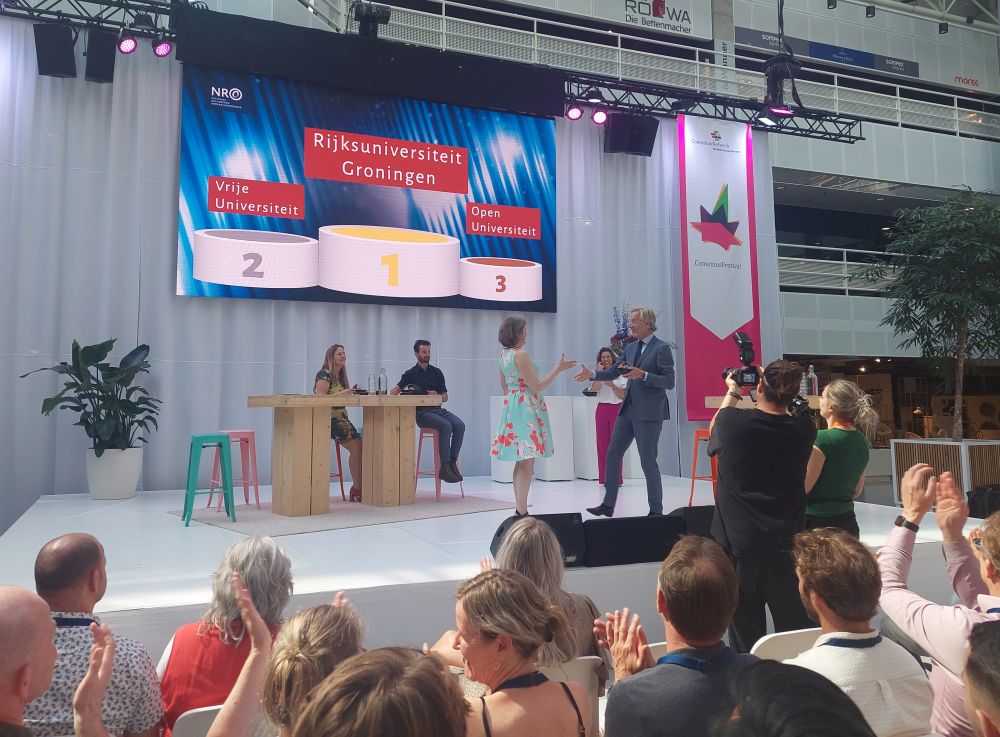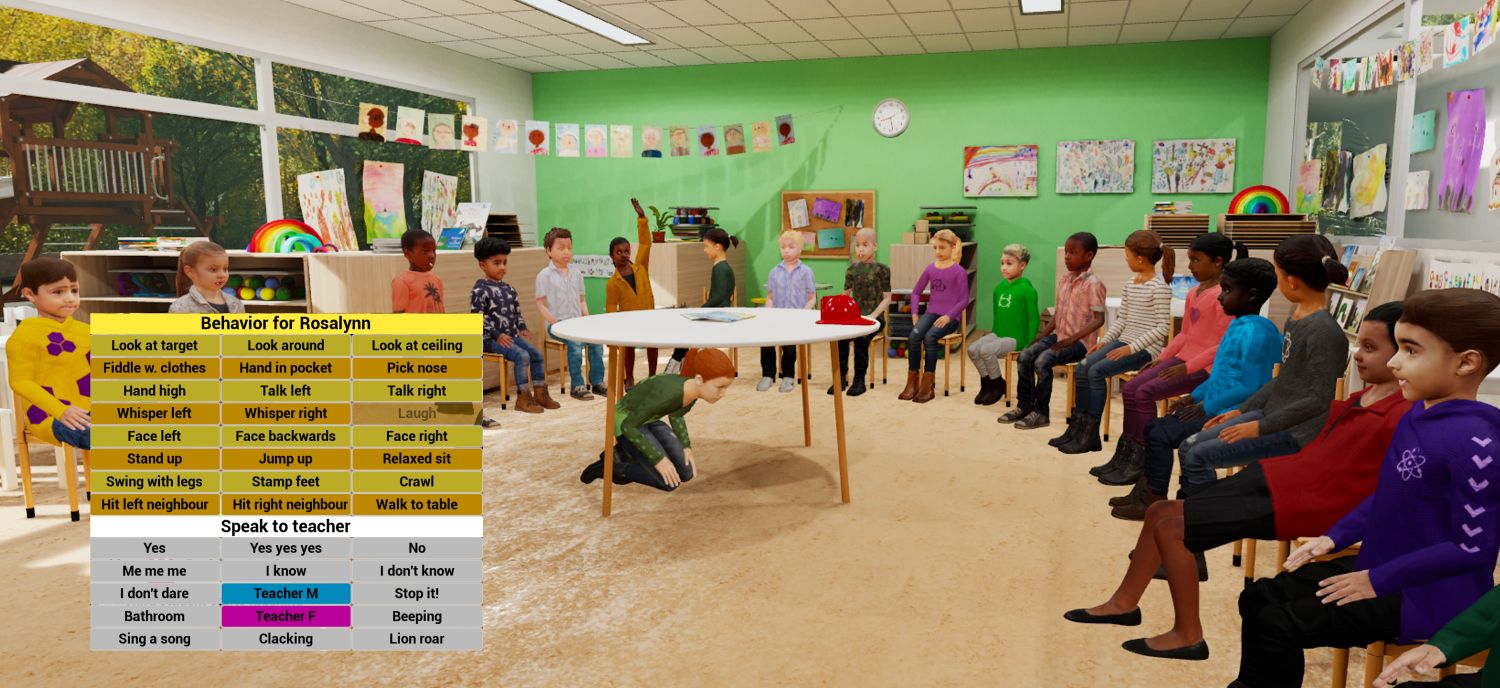Virtual Kindergarten wins Dutch Education Prize 2024
The project 'De Klas op Orde met Virtual Reality' has won the Dutch Education Prize 2024. The Dutch Education Prize is the highest award in secondary vocational and higher education. The project, a collaboration of, among others, Jolien Mouw, associate professor of Educational Sciences, and the UG's Center for Information Technology (CIT), receives an amount of €1.2 million.
The Dutch Education Prize is awarded annually by the National Board for Educational Research to exceptional educational initiatives. The prize is awarded to educational teams in appreciation of, and as an encouragement for, educational innovation and improvement.

Safe practice environment
Maintaining order in the kindergarten requires very specific skills and is one of the major challenges for beginning teachers. Especially in the confusing, dynamic kindergarten classroom, it is difficult to determine how best to respond to young children's behavior. The virtual kindergarten classroom helps students learn to deal with difficult situations already during their training, making them better prepared for practice.
With VR glasses and a VR classroom filled with kindergarten avatars, they can practice constructive strategies to deal with disturbances. From the moment the VR glasses are put on, the student really feels like he is in front of the group. This educational innovation provides students with a safe way to put learned theory they into practice, so they will later enjoy being in front the classroom more.
"As Visualization team, we are proud that we have achieved this result through an agile way of development together with teachers and students."
Various scenarios
In the VR classroom with the kindergarten avatars, the supervising teacher can choose from various challenging scenarios with different behaviors, for example, a child crawling under a table or a loud, passing ambulance that distracts the children.
In the scenarios, each behavior has its own consequences if the student does not intervene in time, but the teacher can also switch a behavior on or off during the simulation if it appears that the student needs a little more time or can be challenged a little more. The VR environment makes it possible to go through difficult situations again. This gives students plenty of space to practice and discover which strategy works when to maintain order in the classroom.

VR application development
Developers of the Visualization team of the Center for Information Technology (CIT) are responsible for creating the VR application of the virtual kindergarten. They developed the virtual classroom environment in close collaboration with Jolien Mouw, creator of this educational innovation. The idea arose during a meeting of the XR hub that the CIT has been organizing since 2017. Since then, the VR environment has been further developed, leading to more scenarios and the integration of eye tracking.
The VR kindergarten class was deployed for the first time in the 2020-2021 academic year. Currently, the tool is being used in the academic primary education teacher training program at the UG, but the Christelijke Hogeschool Ede, Hogeschool Saxion, and Thomas More Hogeschool are also involved in the application and further development of the VR kindergarten classroom.
| Last modified: | 04 October 2024 12.17 p.m. |
More news
-
10 June 2024
Swarming around a skyscraper
Every two weeks, UG Makers puts the spotlight on a researcher who has created something tangible, ranging from homemade measuring equipment for academic research to small or larger products that can change our daily lives. That is how UG...
-
21 May 2024
Results of 2024 University elections
The votes have been counted and the results of the University elections are in!

